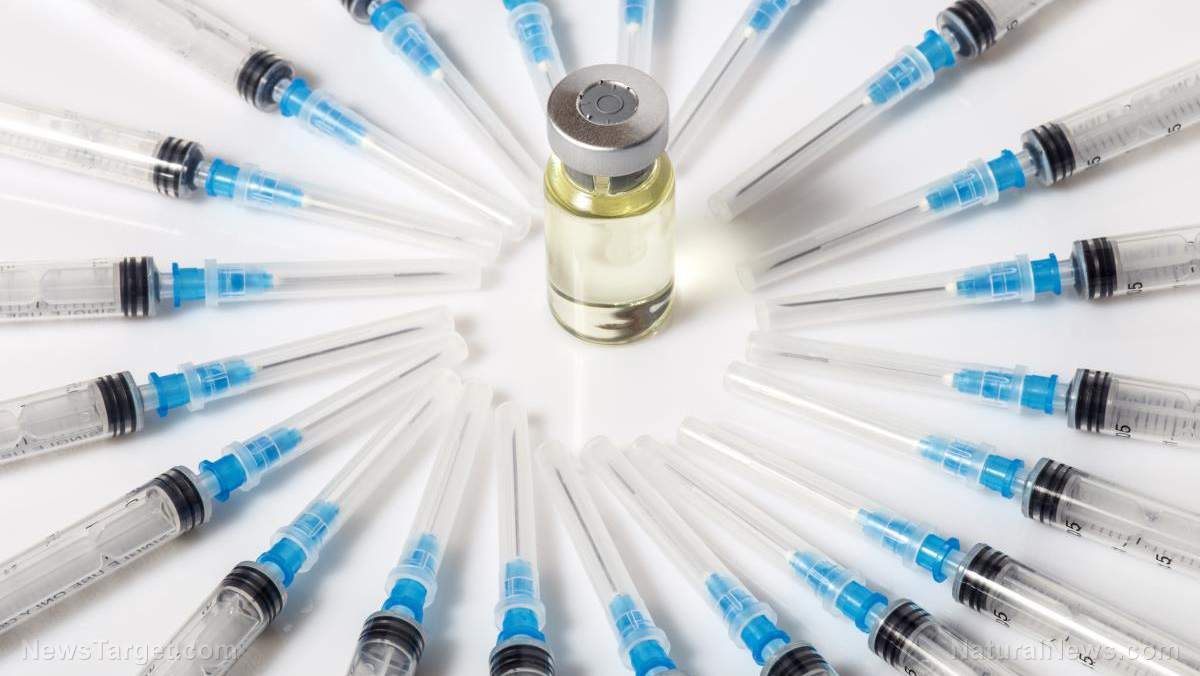Baby food industry knowingly poisons infants with heavy metals – investigation
10/05/2021 / By Lance D Johnson

The House Committee on Oversight and Reform released an investigative report lambasting Gerber, Beech-Nut, Plum Organics, and the rest of the baby food industry. All three companies failed to recall infant rice cereals that contain arsenic levels well above the limit set by the Food and Drug Administration (FDA). A congressional investigation found that baby rice cereals are contaminated with high levels of arsenic, lead, mercury and cadmium. These heavy metals are linked to multiple health issues and pose a serious burden of harm to infants, who are in critical stages of development.
Baby food industry exploits FDA loophole, knowingly poisoning babies
Most baby food manufacturers refuse to test their finished products for heavy metals. The FDA gives these companies a loophole, allowing them to test individual ingredients instead of testing the finished product for heavy metal content. In this way, the baby food industry can ignore the true heavy metal content of their products, fraudulently passing the products through the inspection process. This allows companies to sell inventory that is toxic, as they knowingly poison infants around the world.
Subcommittee chairman, Rep. Raja Krishnamoorthi (D-Ill.) said the report “reveals that companies not only under-report the high levels of toxic content in their baby food, but also knowingly keep toxic products on the market.” Congressman Krishnamoorthi is trying to pass the Baby Food Safety Act to impose new standards on the baby food industry.
In June 2021 there was a baby food recall for contaminated infant rice cereals made by Beech-Nut and Gerber. Beech-Nut recalled just two out of the six products, even though all the products were well over the FDA’s arsenic limit of 100 parts per billion (ppb). Gerber’s recall was also incomplete; two Gerber products exceeding the 100 ppb limit were left on the market, and no action was taken to alert the public.
Plum Organics was mentioned in the report as well. Between 2017 and 2019, the company sold Super Puff rice products that contained arsenic levels above 200 ppb. The FDA only allows there to be 10 ppb maximum arsenic in bottled water products. At least 36 percent of Plum Organic products contained cadmium levels above the FDA’s threshold. Over half of their products were well above the FDA’s cap for arsenic.
FDA approval of baby products turns blind eye to mass poisoning of infants
Both the FDA and the large retailers overlooked these serious issues of food safety. From 2012 to 2017, Wal-Mart only allowed finished baby products to contain a maximum of 23 ppb of arsenic. In 2018, Wal-Mart eased its standard by four times magnitude; now they allow baby food products to contain up to 100 ppb of inorganic arsenic. The report instructs the FDA to close its ingredient test loophole and begin testing the final baby food products.
“FDA should accelerate its proposed timelines for publishing final limits for these toxic heavy metals,” the Congressional panel wrote. Lead, arsenic, cadmium, and mercury levels can pose serious health threats, and regulators must take these issues seriously. An FDA approval should not turn a blind eye to poisonous levels of arsenic, cadmium, lead or mercury.
Since the Congressional report, the FDA has acted, proposing new draft limits “to reduce exposure to toxic elements from foods eaten by babies and young children … to as low as possible.” The FDA’s goal is to phase out ingredients that are notoriously high in heavy metals. Olga Naidenko, Environmental Working Group’s vice president for science investigations, said the FDA needs to stop making proposals and instead “set mandatory standards that baby food companies must meet.” “Parents should not have to wait,” Naidenko said, “and Congress should not wait, but instead set interim levels in the law that companies must meet right away.”
For more on protecting the food supply, read HeavyMetals.News.
Sources include:
Tagged Under: arsenic, baby food industry, Beech-Nut, cadmium, FDA loophole, Gerber, infant health, Lead, mercury, Plum Organics, products, rice cereal, toxic food, toxic ingredients
RECENT NEWS & ARTICLES
COPYRIGHT © 2017 REAL INVESTIGATIONS NEWS




















